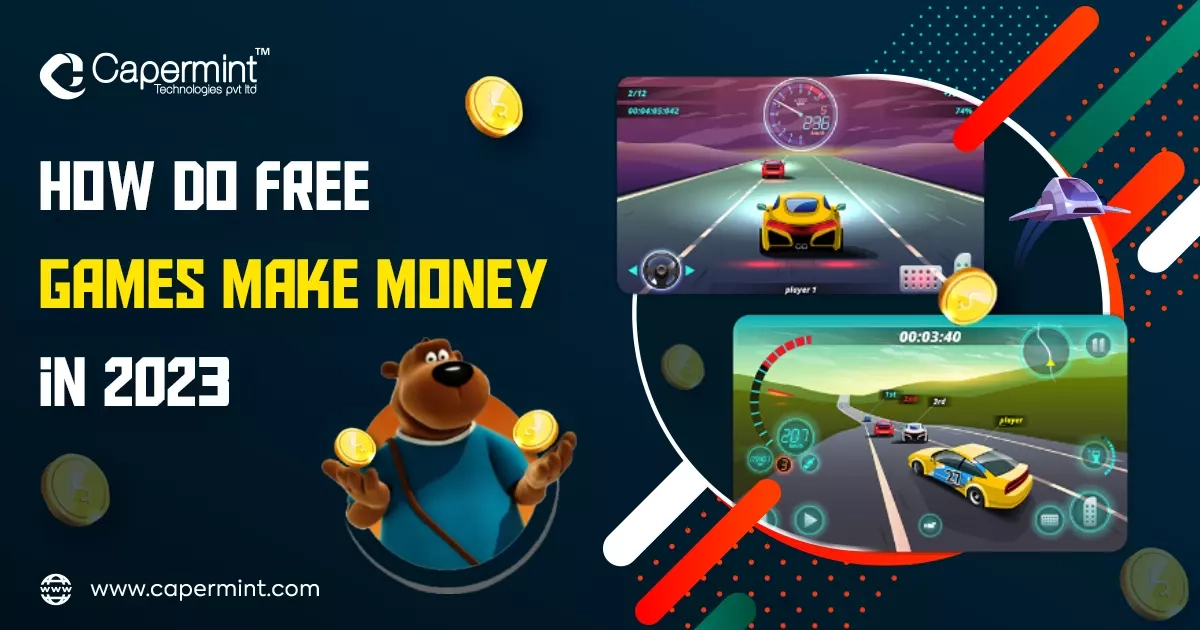How Play to Earn Games Are Creating Opportunities for Gamers to Profit
How Play to Earn Games Are Creating Opportunities for Gamers to Profit
Blog Article
How Play-to-Earn Games Are Reinventing the Pc Gaming Sector

Understanding Play-to-Earn Mechanics
The play-to-earn design has actually emerged as a revolutionary concept within the pc gaming sector, essentially modifying the partnership in between players and the games they involve with. This model enables players to earn tangible benefits, commonly in the type of cryptocurrencies or non-fungible tokens (NFTs), with their in-game activities. Unlike standard pc gaming frameworks that usually monetize via subscription fees or single purchases, play-to-earn games incentivize player participation by directly connecting gameplay accomplishments to real-world worth.
At the core of play-to-earn technicians is the assimilation of blockchain modern technology, which makes certain transparency and conclusive ownership of in-game properties. Players can acquire, market, or trade these assets in decentralized markets, encouraging them with economic agency previously hidden in conventional pc gaming environments. Each gamer's payment to the game ecosystem-- be it through experienced play, critical trading, or community involvement-- improves the total pc gaming experience while giving them an opportunity to create revenue.
As gamers spend time and sources, they not just deepen their involvement with the game but likewise foster a dynamic economic situation that mirrors their cumulative initiatives (play and earn rewards). This makeover of gameplay right into a monetizable venture is improving both gamer inspiration and video game layout
Financial Influence On Players

In addition, play-to-earn versions equalize access to economic benefits. Gamers from differing socio-economic backgrounds can take part and potentially make significant earnings, connecting spaces that exist in traditional work markets. This standard change promotes financial independence, especially in areas where job opportunity may be restricted.
In addition, the introduction of virtual economic situations allows players to develop wealth via calculated financial investments in in-game properties, which can appreciate gradually. This has actually led to the introduction of a brand-new class of players who come close to play-to-earn as a severe income-generating task, usually leading to the reinvestment of earnings right into the pc gaming ecosystem itself. Eventually, the economic impact on players is profound, as they navigate a landscape where recreation and income assemble.
The Function of Blockchain Modern Technology
What makes blockchain modern technology a foundation of play-to-earn video games is its capacity to give security, transparency, and decentralization. By utilizing a distributed ledger system, blockchain ensures that all purchases within the video game are tape-recorded in an unalterable way, enabling players to confirm ownership of in-game assets without depending on a central authority. This openness cultivates count on amongst gamers, as they can independently validate the deficiency and provenance of electronic products, improving their worth.
Additionally, blockchain innovation equips gamers via decentralization, allowing them to take part in peer-to-peer transactions. Gamers are no more restricted to in-game Check Out Your URL economies regulated by designers; instead, they can trade, market, or lease their properties openly in open industries. This shift not just increases the general liquidity of digital properties but additionally urges even more significant player interaction, as customers can straight benefit from their effort and time purchased the video game.
Additionally, blockchain assists in the creation of smart contracts, which automate different in-game procedures, from incentives circulation to administration devices. play and earn rewards. This technology reduces the risk of fraud and guarantees fair game, additional strengthening blockchain's important role in the advancement of play-to-earn video gaming
Criticisms and challenges
Frequently, play-to-earn video games encounter significant challenges and criticisms that can prevent their growth and acceptance within the wider video gaming neighborhood. One main problem is the potential for a speculative bubble, where the value of in-game possessions can vary drastically, causing financial losses for gamers. This volatility weakens the stability that typical video gaming environments usually provide.
Moreover, the combination of blockchain technology often raises inquiries regarding ecological sustainability. The power intake related to he has a good point certain blockchain networks has sparked discussions pertaining to the eco-friendly impact of these video games. Doubters say that the carbon impact created by play-to-earn platforms could prevent eco-conscious gamers.
Additionally, there are worries concerning availability and inclusivity. Several play-to-earn video games call for players to invest considerable in advance resources to get needed possessions, developing barriers for those with restricted funds. This design can unintentionally create a divide in between wealthier players and those who can not afford to participate.
Future Trends in Gaming
As the pc gaming industry remains to progress, a number of future trends are arising that promise to improve the landscape of play-to-earn games and past. One substantial pattern is the raising assimilation of blockchain innovation, which enhances transparency and safety in purchases. This will likely bring about better trust fund among players, urging larger adoption of play-to-earn models.
Additionally, the increase of non-fungible symbols (NFTs) is readied to revolutionize electronic possession, enabling gamers to absolutely own in-game assets. This shift will certainly not just equip gamers yet also develop brand-new economic possibilities within the online environment. The convergence of gaming with various other sectors, such as social media and decentralized money (DeFi), is anticipated to foster cutting-edge gameplay auto mechanics and money making strategies.
In addition, improvements in fabricated knowledge and device knowing will allow extra customized video gaming experiences, satisfying individual player choices and improving interaction. The expanding emphasis on community-driven advancement will likely affect video game layout, as players increasingly participate in shaping their gaming settings. Collectively, these patterns suggest a transformative future for the video gaming market, where play-to-earn versions will certainly play a central role in redefining player communication and value development.
Verdict
In verdict, play-to-earn games stand for a substantial shift in the gaming Get the facts market, promoting financial chances with innovative technicians that take advantage of blockchain modern technology. This version not only democratizes accessibility to monetary advantages for players from numerous socio-economic histories however also motivates community interaction and empowerment. Regardless of facing challenges and criticisms, the potential for future developments suggests that play-to-earn video games will proceed to form the pc gaming landscape, using brand-new methods for wide range production and player participation.
The development of play-to-earn video games represents a significant change in the gaming industry, reshaping the connection between players and the digital economy (play and earn rewards).The play-to-earn model has actually emerged as a cutting edge idea within the gaming market, basically altering the relationship in between gamers and the video games they engage with. Unlike traditional gaming structures that typically generate income from through subscription charges or single acquisitions, play-to-earn video games incentivize gamer engagement by directly linking gameplay accomplishments to real-world worth
These ingenious video gaming systems equip players to generate real-world revenue through their in-game activities, thus changing the typical idea of pc gaming from a simple activity right into a viable economic possibility. Regardless of encountering challenges and objections, the capacity for future developments suggests that play-to-earn video games will proceed to shape the video gaming landscape, providing brand-new avenues for wealth production and gamer involvement.
Report this page